The Kuok Family Shipping Empire
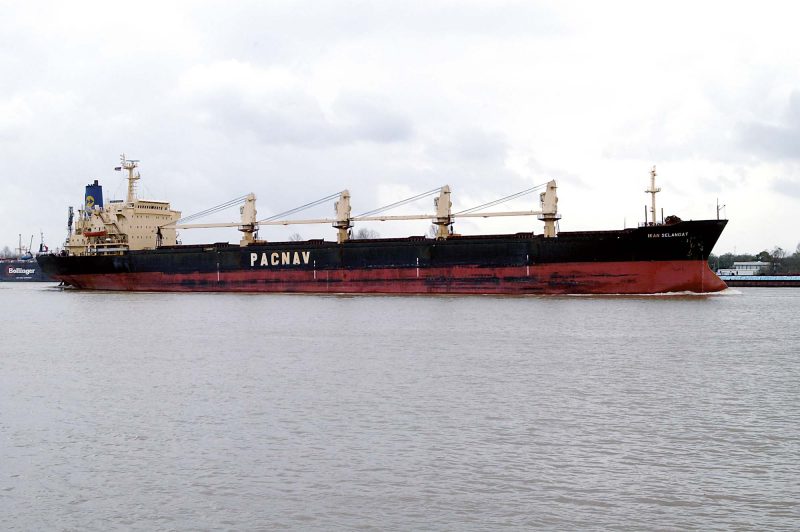

![]() Johore State was the southernmost and most advanced of the Malay States on the peninsula in 1914 when it accepted a British Government resident commissioner, following the example of eight other Malay States since 1874. The British High Commissioner had his Secretariat in Singapore, but at this time the Malay States could not be considered as British territory. Political control by the British of the Straits Settlements of Penang, Malacca and Singapore, however, had been wielded since 1826, but it was not until 1930 that British political control was held over the whole peninsula and every Malay State. A nationalist guerrilla insurgency broke out after World War II, and in 1957 the independence of the Malayan Federation was constitutionally recognised.
Johore State was the southernmost and most advanced of the Malay States on the peninsula in 1914 when it accepted a British Government resident commissioner, following the example of eight other Malay States since 1874. The British High Commissioner had his Secretariat in Singapore, but at this time the Malay States could not be considered as British territory. Political control by the British of the Straits Settlements of Penang, Malacca and Singapore, however, had been wielded since 1826, but it was not until 1930 that British political control was held over the whole peninsula and every Malay State. A nationalist guerrilla insurgency broke out after World War II, and in 1957 the independence of the Malayan Federation was constitutionally recognised.
Robert Kuok
The majority of the Chinese workers from South China arrived in Malaya in the late nineteenth century to work in the tin mines. In Malaya of the inter-war years, Chinese families accounted for only one third of the population, with Malay families being in the majority, but with the Chinese occupying the most important positions in industry. Robert Kuok Hock Nien was born on 6th October 1923 as the son of father Kuok Keng Kang and mother Tang Kak Ji, who had arrived in Malaya from Fujian in China at the start of the 20th century. The family lived in the town of Johore Bahru, the capital of the State of Johore, which straddles all of the extensive land opposite to and facing the north coast of the island of Singapore. The family were wealthy, but suffered greatly during the Great Depression that began in 1929.
Sultan Ibrahim had assumed control of the area in 1824, and began to build up a power base from the vast profits of plantations. The son of Sultan Ibrahim, Abu Bakar, set up an administrative base at Tanjung Puteri, later renamed as the town of Johore Bahru (‘New Johore’). The Royal Sultan Abu Bakar Museum, built in white stone in 1866, is the oldest building in Johore Bahru and the former residence of the royal family of Johore. It is the finest museum in Malaysia and has magnificent views over the Strait of Singapore, with 53 hectares of beautiful gardens to wander through, free of charge. The Chinese Heritage Museum is on the seafront at Johore Bahru, and showcases everything Chinese, even the traditional growing of pepper, and a tropical shrub used in leather tanning and textile dyeing known as extract of gambier.
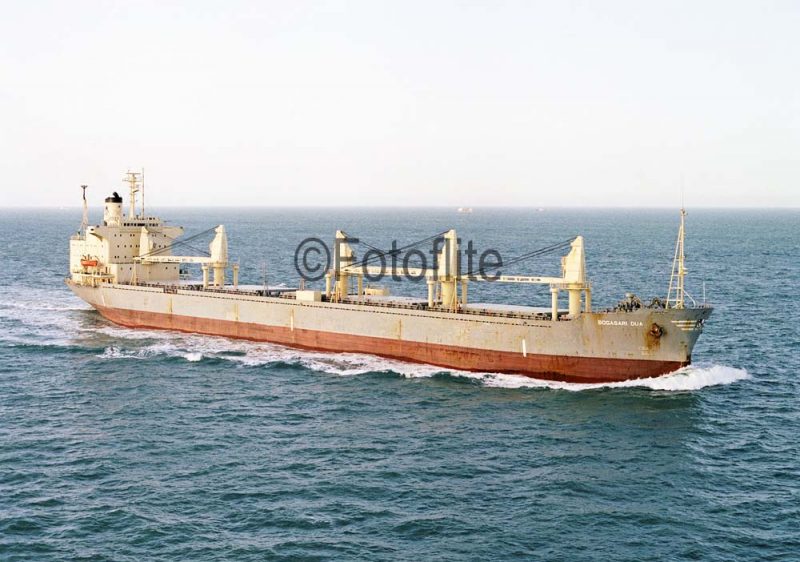
Robert was the youngest of the three Kuok brothers, and he grew up speaking the Chinese Fuzhou dialect of his parents as well as English and Japanese during the wartime occupation of Malaya by the Japanese. He was a student of the Raffles Institution for six months in 1941 and of the English Johore Bahru College. He began his working career as an office boy and clerk working in the rice trading department of Japanese industrial giant Mitsubishi Shoji Kaisha during the Japanese occupation between 1942 and 1945 in Singapore. Mitsubishi was aided by the Japanese military to monopolise the rice trade in Malaya at this time, and Robert Kuok was soon promoted to head the rice trading department, and after the war he took the skills he learned from the Japanese back to the Kuok family business in Johore.
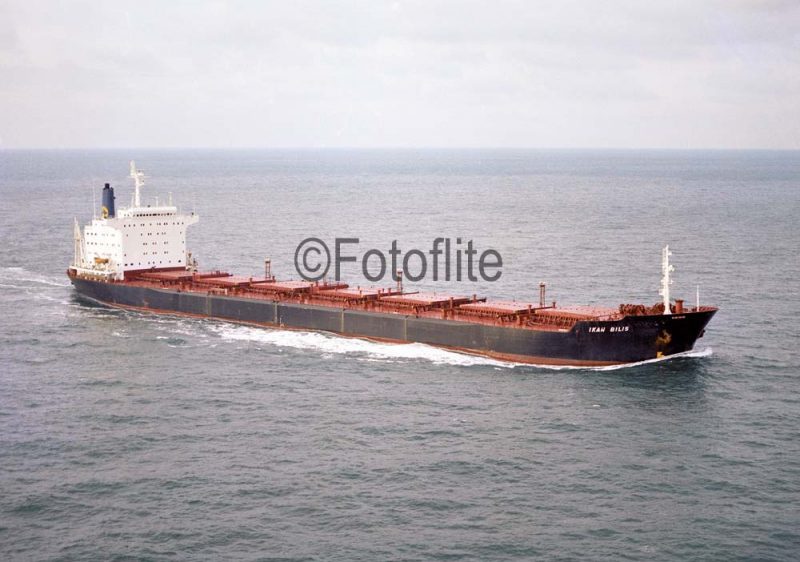
In 1946, Chinese workers were given equal rights along with Indian immigrants to those of the indigenous Malay population. The father of Robert Kuok died in 1948, and Robert Kuok set up in business in 1949 as Kuok Brothers Sendirian Berhad in Johore in Malaya along with his brothers Phillip and William and his cousin Kuok Hock Chin. They invested heavily at first in sugar cane plantations, and a sugar barter deal with India and Mitsui in 1958 led to good relationships with Chinese trading companies in Hong Kong, which were also selling sugar at this time. He established the Malayan Sugar Manufact-uring Company in 1959 to service their extensive Perlis Plantations Berhad in Northern Malaysia.
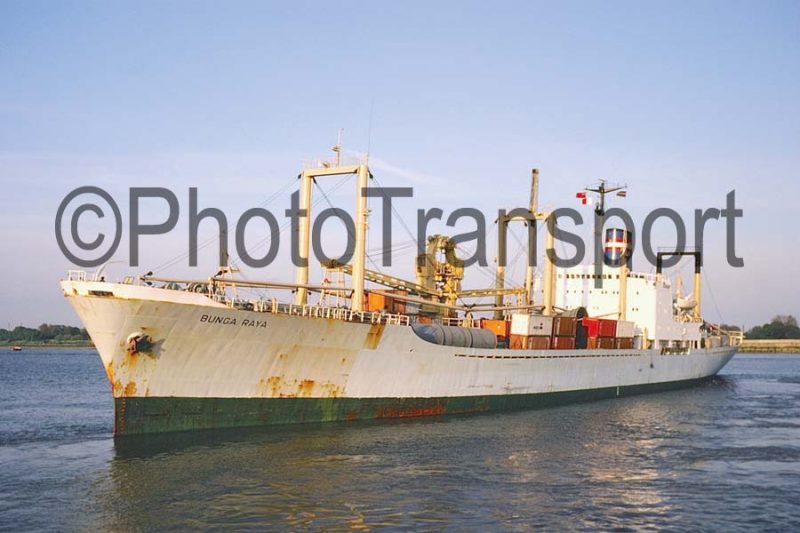
Robert Kuok became known as the ‘Sugar King’ of South East Asia, importing sugar cane from India in chartered ships in 1964 for his sugar refinery, as well as wheat for his flour mill and other internationally traded commodities.
Robert Kuok brought many influential Malayan people into his company as shareholders and directors, and by 1964 he controlled 80% of the Malaysian sugar market with an annual production of 1.5 million tonnes and equivalent to 10% of the world production of sugar. In August of 1965, Malaysia was composed of eleven peninsula States and two States in Borneo, Sabah and Sarawak. Tax concessions were given to pioneering Malaysian enterprises, with the population then composed of 50% Malays, 38% Chinese and 12% Indian people in the peninsula. Manufacturing capacity of the new country was rising fast, from 8.5% of GDP in 1957 to 27.0% in 1990. The Chinese business community benefited from the New Economic Policy (NEP) for the period from 1970 to 1990, with one of the principal aims to restructure Malaysian society to eliminate identification of economic prosperity with race. A second ten year NEP had the same ideology for the period from 1991 to 2001.
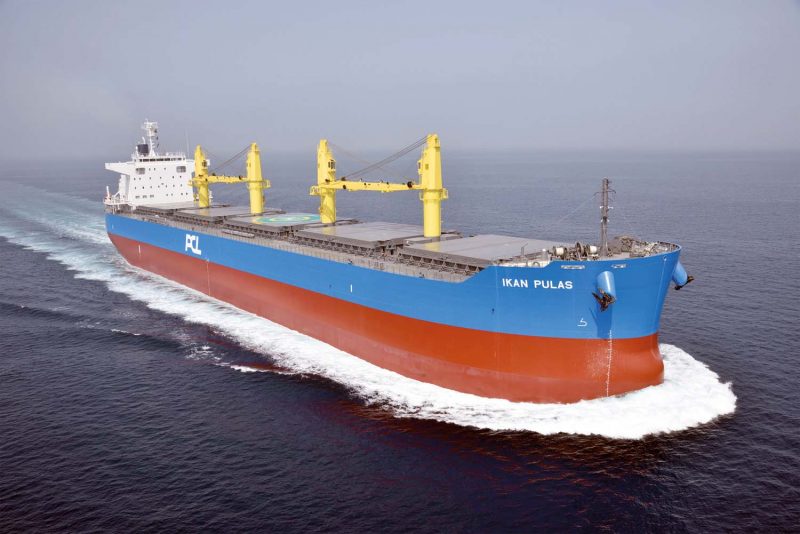
The Kuok family today have extensive large scale interests in shipping and freight forwarding, sugar cane plantations, sugar refineries, flour milling, animal feed, crude oil and palm oil, mining, finance, tourism and hotels, real estate and publishing. Robert Kuok and his son control a vast fleet of 130 owned or chartered bulk carriers, 15 palm oil, product and gas tankers, as well as 120 tugs and offshore vessels. Robert Kuok at the age of 94 years is the wealthiest man in South East Asia, and is regularly listed in the top thirty or forty wealthiest people in the world. Pacific Carriers Ltd. (PCL) has an annual turnover in excess of £500 million, with the fleet engaged in the worldwide transportation of sugar, flour, biomass, coal, fertiliser, grain, iron ore and many other bulk trades.
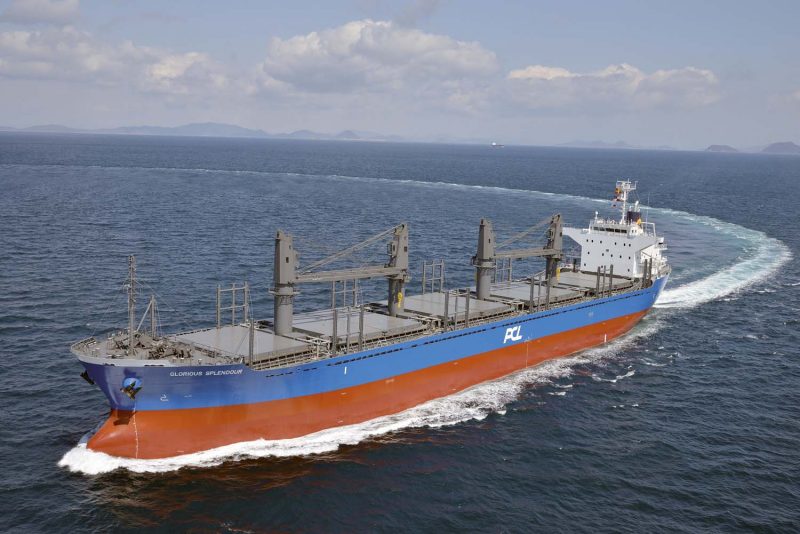
Malaysian International Shipping Corporation (MISC)
Robert Kuok was instrumental in setting up MISC on 6th November 1968 along with Hong Kong shipowner Frank W.K. Tsao. Robert Kuok took a 20% interest, Frank W.K. Tsao took a 15% interest, and the Malayan Chinese Association (MCA) and other Chinese associations took between 20% and 30% of the shares. The former Malayan Interior Minister, Tun Dr Ismail, became the first Chairman of MISC, with the first pair of general cargo ships delivered in 1970/71 from Japanese shipbuilders as Bunga Raya and Bunga Melor of 14,700dwt. They were bareboat chartered from the Japanese Government and paid for on a monthly charter basis, as they were war reparation vessels for the massacre of innocent Chinese workers in Malaya during World War II. A further six similar cargo-liners were built by Japanese shipbuilders for MISC on normal commercial terms, all with a ‘Bunga’ prefix to their name, which means ‘flower’ in Malay.
At the end of 1969, the Malaysian Government took a 20% minority holding in MISC, increased to 40% in 1970, making the Malaysian State the largest shareholder, followed by Robert Kuok, Frank W.K. Tsao, and the Malaysian Chinese Association (MCA) and other Chinese associations. MISC entered the container trades in 1977 with the conversion of cargo-liners Bunga Angsana and her sister Bunga Teratai into container ships of 600 TEU capacity. MISC prospered in the container trades, and later in 1997 the Malaysian Government owned Petroliam Nasional Berhad (PETRONAS) took a 62.44% majority holding in MISC. Robert Kuok and Frank W.K. Tsao had taken the opportunity in 1987 of taking MISC into a publicly listed corporation, in a similar move that Robert Kuok had previously used for Kuok Brothers. At this time, he sold the majority of his shares to deserving Directors, Staff Captains, and Ship Masters of MISC, who had helped to make MISC into a big international shipping success.
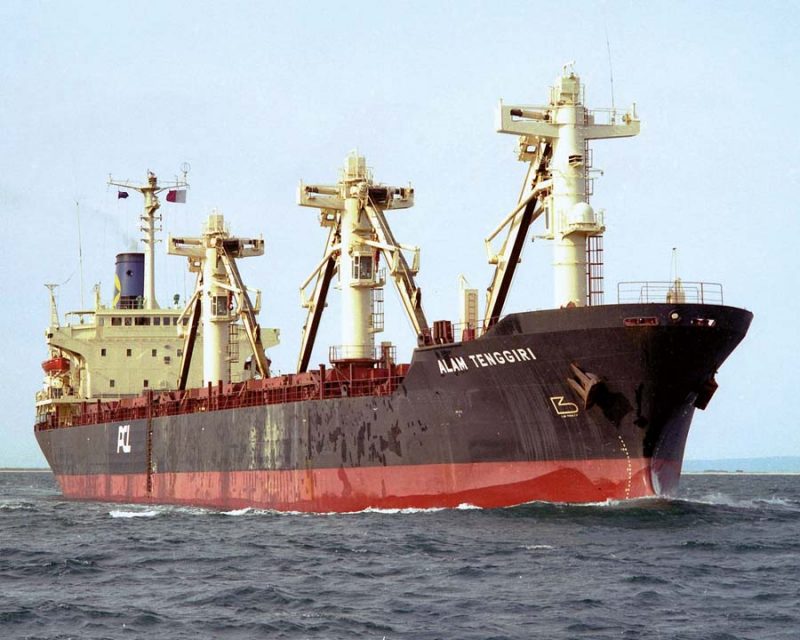
Pacific Carriers Ltd. (PCL)
This company was formed in 1973 to be the shipbroker and charterer to the Kuok Group businesses, in particular the sugar and flour milling industries. Bogasari Flour Mills P.T. had a ravenous appetite for imported wheat, the Kuok sugar refinery required 1,600 tons of raw sugar per day to operate, with PCL chartering over 250 vessels per year on a voyage basis, but also including some time charters, to satisfy its own internal demand. When bulk carriers of 20,000dwt were purchased in 1977, the Kuok family shipping business went global in a big way.
Shipowning was begun in that year of 1977 with the purchase of the first bulkers for the Sari Shipping (Pte) Ltd. They were used in a triangular trade around the Pacific Rim e.g. from South East Asian ports to the Australian eastern seaboard ports of Cairns and Newcastle (NSW), or across the Pacific to Vancouver and the Columbia river, returning with grain to Indonesia or Australia. Goldensari I and Goldensari II were Japanese built new bulkers of 27,000dwt powered by six cylinder two stroke single acting IHI diesel engines of 9,900 bhp to give service speeds of 14.5 knots. Goldensari III followed in 1982 of 28,200dwt, but the trio were transferred shortly afterwards to the ownership of the Bogasari Flour Mills P.T., a Kuok subsidiary company, and renamed Bogasari Dua, Bogasari Empat and Bogasari Lima. They transported flour from several Western Australian ports e.g. Albany, Esperance and Geraldton to Singapore and Indonesia.
Two naming themes are used by PCL, with the first being the prefix ‘Ikan’ which means ‘fish’ in Malayan e.g. Ikan Salmon, while the second prefix is ‘Alam’, which is the abbreviation for the Akademi Laut Maritime Training College of Malaysia that has trained all of the officers and crews for the Kuok family shipping fleet. The ‘Ikan’ prefix was first used in 1978 for the new bulker Ikan Belanak of 22,904dwt, launched at Osaka on 30th August 1978, and the purchased seven hold bulker Ikan Bilis of 63,967dwt, the former Adriatic Wasa built in 1977. This nomenclature was then used for the seven hold Ikan Bawal of 64,931dwt, the former Thorsdrake built in 1976, Ikan Kerapu of 64,911dwt and her exact sister Ikan Kerisi built in 1980, and the larger Ikan Tongkol of 138,490dwt completed in February 1982 by Mitsubishi Heavy Industries at Nagasaki and powered by a six cylinder Sulzer two stroke single acting diesel engine of 20,400 bhp to give a service speed of 14.5 knots. Ikan Bawal (2) of 64,930dwt was launched at Innoshima on 10th November 1981 and after completion traded with the other PCL ‘Ikan’ bulkers internationally, whereas the ‘Alam’ multi-purpose vessels traded around the Pacific Rim.
Ikan Tongol sailed on her maiden voyage from Nagasaki to load coal at Hay Point for a U.K. port, and then operated on voyage and time charters in the iron ore and coal trades, some of her voyages being Sepetiba (Brazil) to the Tees with iron ore in early May 1989, Port Hedland (Western Australia) to Japan with iron ore, Hampton Roads (Va) to Pohang (Korea) with coal, and Richards Bay (South Africa) to Ijmuiden with coal, until her sale in 1997 and renaming as Good News under the St. Vincent and Grenadines flag.
Several barges were completed between 1977 and 1981 for the river transportation of sugar and flour in South East Asia, as well as two palm oil tankers, the sisters Ikan Duri and Ikan Pari of 3,500dwt completed in 1981 to transport palm oil from Borneo. Two IHI ‘Freedom’ general cargo types were added in the early 1980s to be renamed as Ikan Tamban (ex Nego Harmony) and Alam Tenang (ex Wistaria Coral). The fleet increased from twenty vessels in 1985 to a larger fleet of 46 vessels in 1990, with Ikan Tongol and the sisters Ikan Bilis and Ikan Beliak of 63,900dwt the largest of the fleet, and the remainder in the Handysize range of bulker from 20,000dwt to 45,000dwt including a dozen ‘Freedom Mark II’ and ‘Fortune’ type vessels built by IHI. Thirteen of the fleet had ‘Ikan’ prefixes to their names, nine had ‘Alam’ prefixes to their names, seven had ‘Mulpha’ prefixes to their names, while Goldensari Indah of 45,623dwt was completed in 1986 for charter to Bogasari Flour Mills P.T. The remainder of the fleet were purchased or long term chartered with a variety of names e.g. sisters Amazon Career and Kiukiang Career of 41,520dwt, and Bronson, the former Federal Elbe of 28,645dwt.
Several bulkers were purchased in the late 1980s and 1990s and given ‘Alam’ prefixes to their names, including Alam University of 28,074dwt built as Rich Alliance in 1984, Alam United of 27,678dwt built as Silver Leader in 1984, Alam Sempurna of 27,650dwt purchased in 1991 (ex Saint Laurent), Alam Gula of 23,418dwt purchased in 1996 (ex Orchis Island), Alam Sejahtera of 27,226dwt purchased in 1992 (ex Olympic Dignity), Alam Senang of 27,654dwt (ex Goldean Alliance but purchased in 1993 as Atlantic), Alam Baru of 65,117dwt purchased in 1994 (ex Doric Armour) and Alam Aman of 28,305dwt purchased in 1987 (ex Cavourella). The sextet were mostly powered by six cylinder two stroke Sulzer diesel engines of up to 9,000 bhp manufactured by their Japanese shipbuilders giving service speeds of 14.5 knots, except the neo-Panamax Alam Baru which had a seven cylinder two stroke Sulzer diesel of 10,900 bhp giving a service speed of 14.0 knots. A number of PCL ships also switched from ‘Alam’ to ‘Ikan’ prefixes and vice-versa.
The PCL fleet in 1998 was one of fifty vessels, with half of the fleet being bulkers, fifteen being multi-purpose vessels, six being palm oil tankers and two being small feeder container ships. Thirty vessels had ‘Alam’ prefixes to their names, ten had ‘Ikan’ prefixes, three had ‘Bogasari’ prefixes, and there were other bulkers with a variety of names e.g. Ulloa of 28,578 and built in 1983 and Goldensari Indah of 45,263dwt and built in 1986. This big fleet did trade to European waters e.g. Alam Baru delivered a cargo of 65,000 tonnes of bauxite to Aughinish on the Shannon river in June 1999 and then ballasted to Murmansk to load iron ore, and Ikan Selengat delivered a cargo of 37,500 tonnes of nitrates from Antofagasta (Chile) to Calais in August 1999. The fleet was instead heavily into Pacific Rim trading to Australia, New Zealand and the Far East, and also to India, South Africa, North America and South America.
Robert Kuok took the publicly listed PCL on the Singapore Stock Exchange into private company ownership in 2001, unfortunately at a large discount to its net asset value. Worldwide ports visited by the PCL fleet during a single month of this year included Aden, Albany, Ashtabula, Aqaba, Bangkok, Beira, Bintulu (Indonesia), Chiba, Comeau Bay (Canada), Chennai, Douala, Durban, Esperance, Fremantle, Geraldton, Hay Point (Australia), Hong Kong, Houston, Jakarta, Kaohsiung, Kolkata, Ko Sichang (Thailand), Karachi, Laem Chabang (Thailand), Montreal, Mackay, Map Ta Phut (Thailand), Mombasa, Mumbai, New Orleans, Oran, Progreso (Mexico), Port Angeles, Port Klang, Portland (Oregon), Pasir Gudang (Malaysia), Paranagua (Brazil), Port Kembla (Australia), Port au Prince (Haiti), Quebec, Rio Hainan (Dominican Republic), Rio Grande (Brazil), Semarang (Java), Singapore, San Pedro (Ivory Coast), Salvador (Brazil), San Juan (Puerto Rico), Takoradi, Townsville, Vancouver, Valparaiso, Vera Cruz and many more ports. Two new long term chartered Panamax sister bulkers, Emerald Indah and Ruby Indah of 77,755dwt, were employed on a triangular Pacific rim trade with iron ore from Dampier to Nagoya, a Transpacific crossing to Vancouver followed by grain back to Indonesia or Australia.
Pacc Container Line (PTE) Ltd.
A feeder container service had operated since December 1983 as Talang Shipping (Pte) Ltd. from the South East Asian ports into Singapore, and was renamed in July 1997 as PACC Container Line (Pte) Ltd. using small container ships. The twin screw Pac Bali, Pac Bangka and Alam Jaya II of 310 TEU capacity, built during 1997/98, brought containers into the Singapore hub from Jakarta, Padang (Sumatra), Pekanbaru (Java), Semarang (Java), Sourabaya (Java), Pasir Gudang (Johore), Port Klang (Melaka), and Kolkata (India), as well as several other ports for loading on to ‘Alam’ multi-purpose vessels for the Pacnav S.A. liner parcel and breakbulk service to Mexican, U.S.A. and South American ports, first established in 1987.
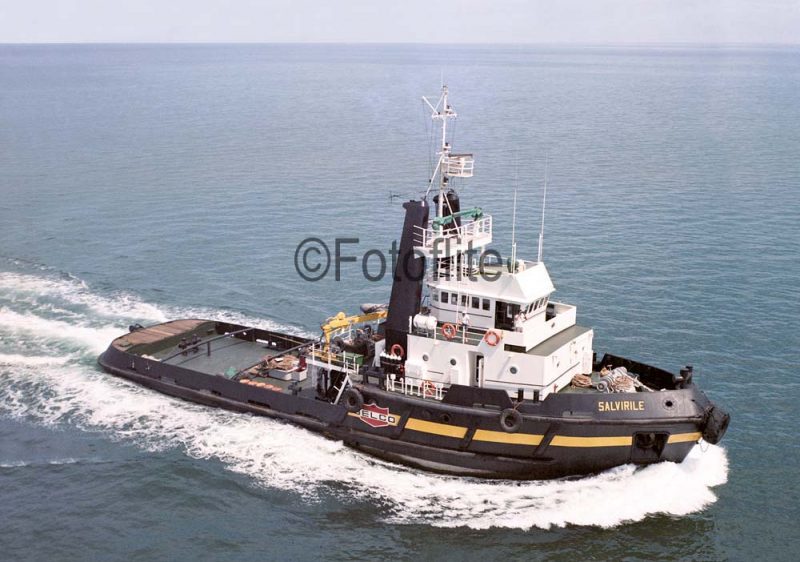
PACC Ship Managers (U.K.) Ltd. was formed in 2001 in London to manage ships in the U.K. and Europe as well as for other European commercial shipping needs, and complemented PACC Ship Managers (Pte) Ltd. in Singapore. The PCL fleet in 2009 was one of over fifty vessels, with seven having ‘Ikan’ prefixes to their names in Ikan Altamira, Ikan Juara, Ikan Manzanillo, Ikan Sawara, Ikan Selangat, Ikan Sepat, and Ikan Veracruz, twelve having ‘Alam’ prefixes to their names in Alam Budi, Alam Bitara, Alam Belia, Alam Berkat and Alam Bistari (all tankers of 47,000dwt and chartered to Lauritzen Tankers A/S), and bulkers Alam Bitara, Alam Murni, Alam Aman II, Alam Penting, Alam Permai, Alam Pesona and Alam Pintar.
Twenty multi-purpose vessels having ‘PAC’ prefixes to their names were Pac Acrux (1,300 TEU), Pac Adara (1,300 TEU), Pac Alkaid (1,344 TEU), Pac Alnath (1,377 TEU), Pac Altair (1,300 TEU), Pac Antares (1,300 TEU), Pac Antlia (1,078 TEU), Pac Aquarius (1,078), Pac Aquila (1,078 TEU), Pac Athena (1,300 TEU), Pac Aries (1,300 TEU), Pac Bali (308 TEU), Pac Banda (314 TEU), Pac Bangka (308 TEU), Pac Bintan (308 TEU), Pac Deneb (1,364 TEU), Pac Dubhe (1,364 TEU), Pac Lombok (1,050 TEU), Pac Makassar (639 TEU), Pac Natuna (850 TEU), Pac Palawan (639 TEU), Pac Star (1,300 TEU), Pac Sunda (520 TEU) and Pac Sulu (520 TEU). The larger ‘Pac’ multi-purpose vessels feature holds with triple decks, with each hold able to be converted to single, double or triple decks to match specific stowage requirements. A maximum lifting capacity of 120 tonnes can be achieved by using cranes in tandem. The cargo hold ventilation is at least twenty air changes per hour.
This PACC fleet operate worldwide including to European ports such as Amsterdam, Rotterdam and Hamburg and also called at British ports such as Portsmouth, Liverpool and Southampton. There were also five new palm oil tankers of 17,000dwt built during 2008/09 that traded from Balik Papan in Borneo to Singapore in Flores Palm, Java Palm, Kalimantan Palm, Sulawesi Palm, and Sumatra Palm. They flew the Indonesian flag on their coastal voyages, and home ported at Batam Island, a short boat ride from Singapore on the Riau archipelago of Indonesia in the South China Sea.
Pacc Offshore Services Holdings (POSH)
Selco Salvage Ltd. of Singapore was founded in 1951, but apart from Singapore there was little salvage equipment and docking facilities in Malaya at this time, consisting of one graving dock and six small slipways at Penang, Port Swettenham, Sandakan (Sabah) and Kuching (Sarawak). The first vessels in the Selco fleet were:-
The salvage tug Salvana 392/1955, the former tug Marinia built by Cook, Welton and Gemmell at Beverley and purchased in 1966
The salvage vessel Salvista 398/1945, a former naval landing craft built by Fleming and Ferguson at Paisley and converted into a salvage vessel in 1951 and purchased in 1964
The tug Salvaliant 780/1945, built as the naval tug Encore by Cochrane and Sons, Selby and purchased in 1970
Selco was renamed Semco (Pte) Ltd. in 1986, with the ‘Semco’ logo on the black funnels of the tugs and ‘SEMCO SALVAGE’ in bold white letters on the black hulls. The famous twin funnelled tug Lloydsman of 2,041grt was completed at Leith in 1971 by the Robb Caledon yard and was powered by twin Crossley Pielstick diesels of a total of 10,000 bhp to give a bollard pull of 150 tonnes. She joined Selco in 1980 and was renamed Salviscount, and later towed two VLCCs in tandem from Maracaibo to Kaohsiung at an average speed of 3.25 knots for the 13,500 mile voyage taking 173 days. However, after the Semco takeover of Selco in 1986 she was laid up and arrived at Gadani Beach on 16th March 1988 after a short career of only seventeen years. Salvanguard of 1,167grt was another former United Towing Company tug, built as Alice L. Moran in 1966 for Moran Towing of New York, and sold in 1969 to United Towing and renamed Statesman. She joined Selco in 1978 and was renamed Salvanguard, but had been sold on by 1986 for charter to Wijsmuller Salvage B.V. of Holland.
The Semco fleet in 1986 on takeover from Selco was twenty tugs in Salviscount, Salvail, Salvenom, Salversatile, Salveto, Salvury, Salvacheer, Salvain, Salvalet, Salviking, Salviceroy, Salvirile, Salviva, Salvalour, Salvenus, Salvanquish, Salviola, Salviper, Salvista and Saltore and five salvage barges. Numerous marine casualties were towed or assisted into port by Semco tugs, with some tugs stationed in the Persian Gulf during the Iraq/Iran War.
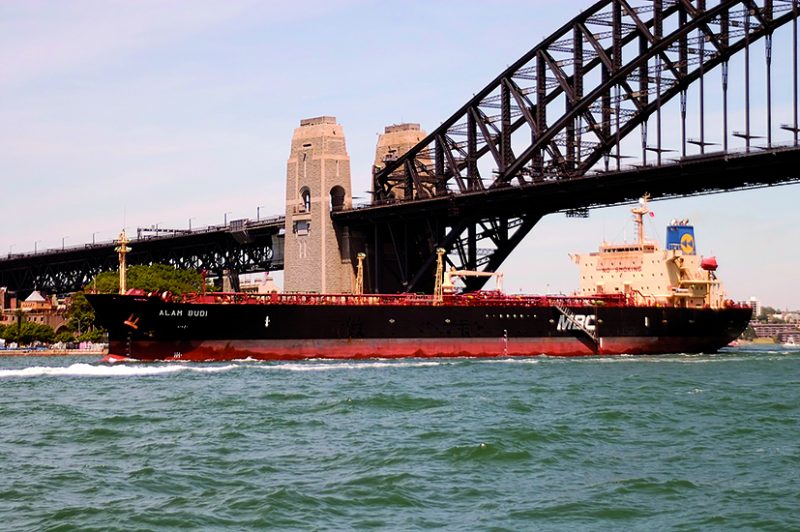
On 24th November 1987, Salvenus of 699grt and built in 1978 as Ocean Discoverer and purchased in 1981, was hit by an Iraqi Exocet missile, killing one crew member, with the tug later towed into Sharjah (UAE) by the supply ship Nice Tulip. Salvenus was repaired and remained in the Selco fleet until sold to Indian owners in 2003 and renamed Melody 3, and today sails as Sea Melody. Semi-submersible heavy lift ships had taken some of the deep sea towing market by 1998, and the Semco fleet had been cut by half to ten tugs and two barges, the biggest tug being Salvanguard of 2,699grt built in 1978 as Dahlia at Uwajima in Japan for towing under the Japanese flag.
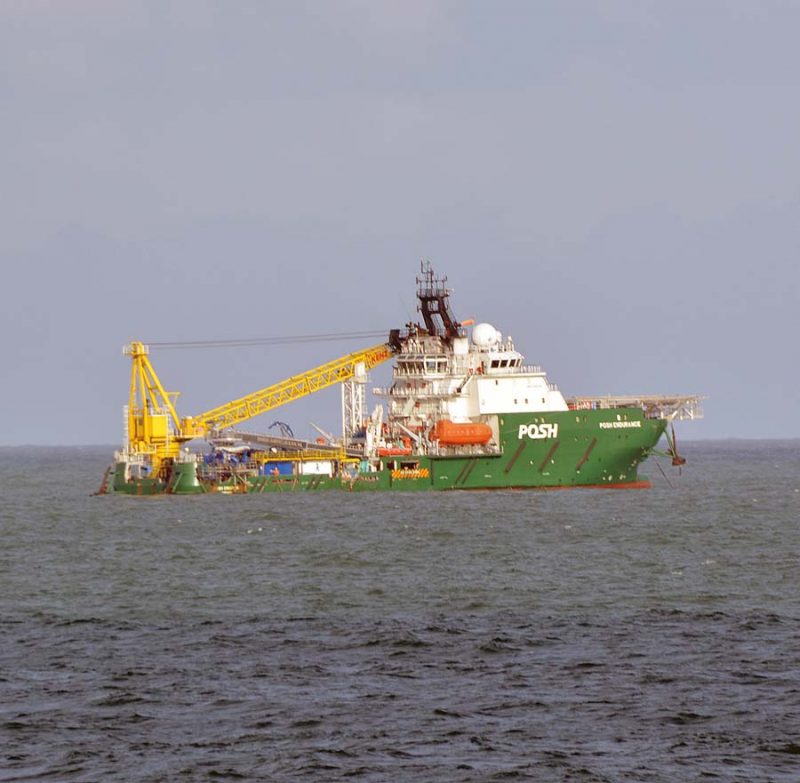
The offshore Indonesian and Western Australian oil industry led to a revival at Singapore of the use of anchor handling tugs, and on 8th August 2003, PCL announced it had formed a joint venture with Dolphin Shipping Company (Pte) Ltd., a subsidiary of Semco (Pte) Ltd. to operate and service offshore supply boats, anchor handling tugs, salvage tugs, barges and workboats in South East Asian ports. The joint venture company was renamed Pacific Workboats (Pte) Ltd. with PCL holding 50% of the equity of the company, with the initial paid up capital of the company being 500,000 Singapore dollars.
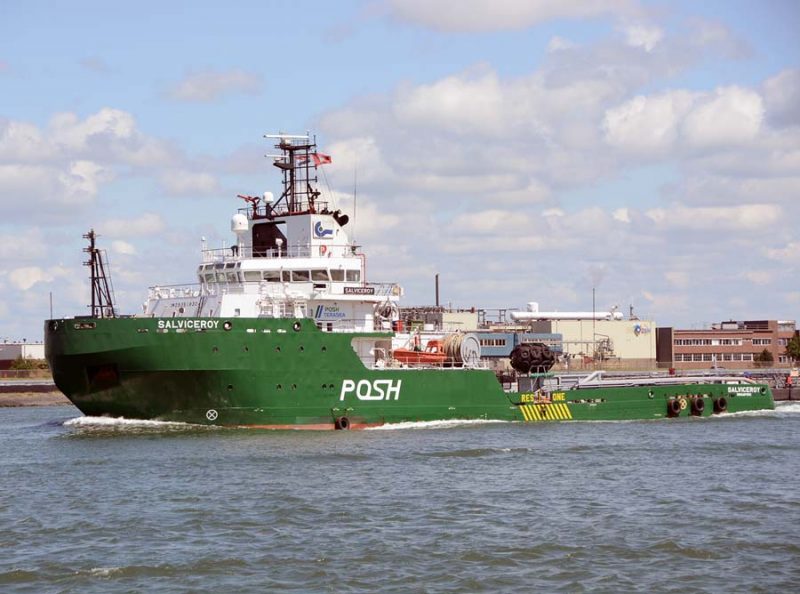
PACC Offshore Services Holdings Ltd. (POSH) was formed in October 2007 by acquiring Semco (Pte) Ltd. and Maritime (Pte) Ltd., a transportation and installation operator, plus several other offshore companies from the Port of Singapore Authority (PSA) to boost the Kuok Group’s offshore marine support services business. The combined transaction cost around $500 million, and the sale of the PSA unit which operated tugs, crane barges and offshore oil platform supply vessels, was the last of the non-container businesses to be sold by the PSA, which then concentrated on container throughput at its giant container terminals. Orders were placed by POSH for two deepwater anchor handling tugs of 16,000 bhp and sixteen oilfield anchor handling tugs of 8,000 to 10,000 bhp.
Twenty offshore supply boats, anchor handling tugs and salvage tugs formed the first POSH fleet, including the tugs Salvigour, Salvixen, Salvaliant, Salvanguard, Salviscount, Salveritas, Salvision, Salvaree, Salvigilant, Salvalour and Salviceroy built between 1982 and 2008 and up to 3,000grt. The twin funnelled Salvigour, and earlier sister Salvaliant built in 1987, carried out worldwide towage, with Salvigour built in 1990 by the Jurong Shipyard with a length of 66.5 metres, gross tonnage of 1,733, and was powered by twin Deutz main diesels generating a total of 6,600 bhp and giving a bollard pull of 107 tonnes and a free running speed of sixteen knots. She was sold in August 2013 to South Korean owners and renamed Dong Bong Pallas.
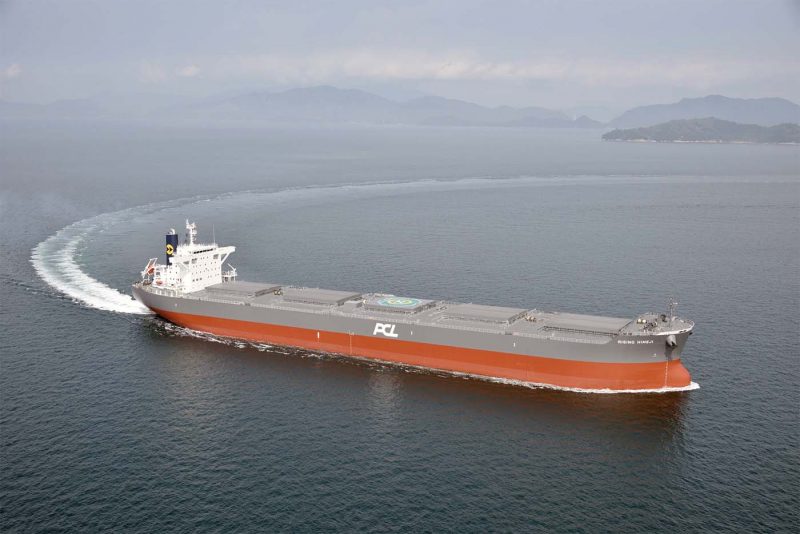
This fleet soon grew larger with anchor handling tugs and offshore supply vessels up to 4,500grt including POSH Achiever, POSH Assistor, POSH Bali, POSH Bangka, POSH Champion, POSH Conquest, POSH Constant, POSH Concorde, POSH Fulmar, POSH Gannet, POSH Harmony, POSH Harvest, POSH Hazel, POSH Healer, POSH Honesty, POSH Honour, POSH Mulia, POSH Pahlawan, POSH Panglima, POSH Pelican, POSH Persistence, POSH Petrel, POSH Raja, POSH Ratna, POSH Ratu, POSH Reliance, POSH Resource, POSH Sandpiper, POSH Shearwater, POSH Skua, POSH Value, POSH Vantage, POSH Venture, POSH Verdant, POSH Veritas, POSH Vibrant, POSH Victory, POSH Viking, POSH Virtue and POSH Voyager. The ‘C’ class of anchor handling tugs are the most powerful at 16,300 bhp.
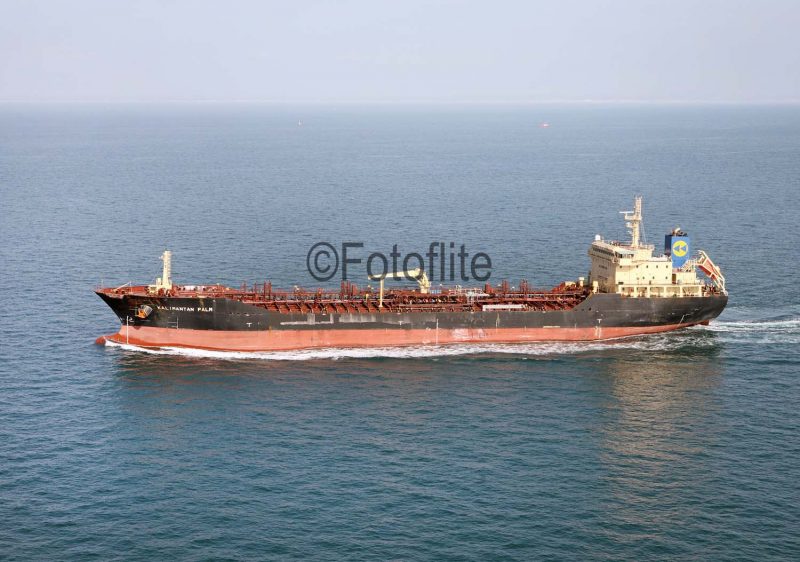

The offshore accommodation sector was entered in 2008 with four ‘floatels’ with two more joining in 2012, and eight platform supply vessels (PSV) were acquired in 2010. This big fleet was contracted to operate in the Persian Gulf, Offshore Brazil, and Indonesian oilfields for oil majors such as Shell. The large FPSO Kizomba B was towed from Ulsan in Korea to offshore Luanda in Angola from 30th January 2005 to the end of April by Salvanguard and sister Salviscount, sisters built in 2004 of 165 tonnes bollard pull, and Salvaliant of 110 tonnes bollard pull, with Salvana of 145 tonnes used during the positioning of the FPSO. This follows the successful tow of FPSO Kizomba A to the same location in 2004.
The deep sea towage company POSH Terasea (Pte) Ltd. was formed in 2013 as a joint venture between POSH and Terasea (Pte) Ltd. of Singapore, with a fleet of nine very powerful deep sea tugs in Salviceroy, Salveritas, Salvigilant, Salvanguard, Salviscount, Terasea Falcon, Terasea Hawk, Terasea Eagle and Terasea Osprey. The ‘Terasea’ quartet were completed during 2013/14, and on 21st April 2016, the tugs Terasea Hawk, Terasea Eagle and Terasea Osprey of 205 tonnes bollard pull completed the tow of FPSO Glen Lyon from Ulsan to Haugesund in 99 days with four bunker stops at Singapore, Port Louis, Walvis Bay and Las Palmas. FPSO Glen Lyon became the production and storage tanker at the Schiehallion oilfield to the west of the Shetlands. Some of the tows in 2017 were FPSOs for the Prelude and Ichthys oilfields in offshore Western Australia, and the Egina oilfield in offshore Nigeria, as well as five jack up rigs including ENSCO 56, West Cressida, Atwood Orca, Soehanah in South East Asia, the LNG carrier Golar Grind from Labuan (Malaysia) to Singapore, deck cargoes from Abu Dhabi (UAE) to Batam (Indonesia), barges from Zhoushan (China) to Tokyo, and the accommodation floatel Bibby Progress from Koje (Korea) to Singapore.
The current big offshore support fleet mostly have ‘POSH’ prefixes to their names, with a big total of 120 vessels comprising 44 anchor handling tugs (AHTS) of various bollard pulls, fifteen platform supply vessels (PSV), four utility maintenance vessels, three multi-purpose support vessels, nine accommodation ‘floatels’, eighteen barges up to 30,500dwt, two crane barges, two emergency support vessels, and two dozen harbour tugs in use at various South East Asian ports.
The deep sea tug Trico Mystic of 1,708grt and built in 2008 sails under the American flag.
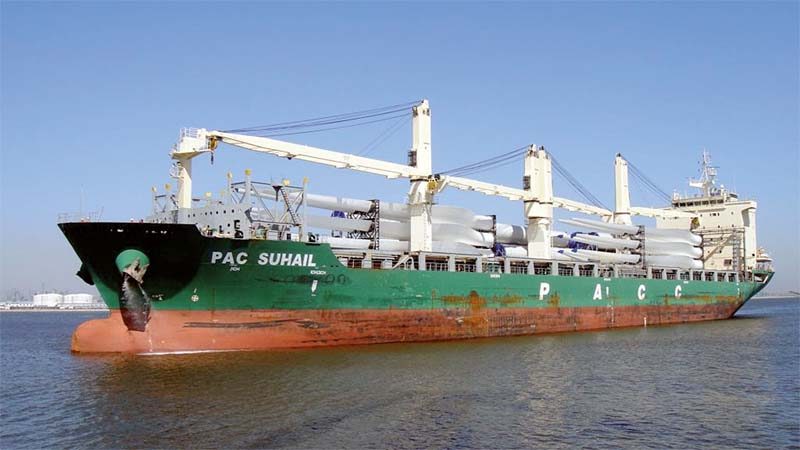
The PACC Offshore Services Holdings Ltd. (POSH) fleet has grown into a very much larger fleet of offshore tugs and vessels of all types for worldwide operation. The low Brent barrel of crude oil price throughout 2016 and slump in oil exploration and offshore work gave a loss of $2.7 million in the second quarter of 2016 for POSH on revenues down by 8% to $42.4 million. There was a lower utilisation of all offshore vessels and much reduced charter rates obtainable.
New Capesize Bulkers
A massive investment in new double hull bulkers has been made during the last decade for PCL, with a very large fleet of over sixty new bulkers from 28,000dwt to the big Capesize vessels of 207,850dwt that have been added to the PCL fleet. They trade internationally with coal to India, steel and bulk products from India, iron ore from Australia and Brazil to China, and many other worldwide trades, are named as follows:-
Capesize 181,500 to 207,850dwt
Ungeared bulkers Jubilant Excellence, Jubilant Future, Jubilant Dream.
Kamsarmax and Larger Bulkers 85,000 to 119,400dwt
Ungeared bulkers Double Delight, Double Harmony, Double Fortune, Double Fantasy, Double Miracle, Double Paradise, Double Prestige, Double Pride, Double Providence, Ikan Keras, Illawarra Fortune, Jubilant Devotion, Jubilant Glory, Jubilant Success, Jubilant Treasure, and Rising Hemeji.
Panamax 75,000 to 84,000dwt
Ungeared bulkers Deccan Pride, Ikan Bagang, Ikan Bagat, Ikan Bawal, Ikan Berkas, Ikan Bilis, Ikan Kerapu of 2005 renamed Sea of Fortune in 2009, and a new Ikan Kerapu built in 2015.
Handymax 56,000 to 60,000dwt
Ungeared bulkers Atlantic Ensenada, Atlantic Maya, Atlantic Merida, Atlantic Mexico, Atlantic Manzanillo, Atlantic Monterrey, Atlantic Yucatan, Eternal Triumph, Ikan Seligi, Ikan Senyur, Ikan Parang, Ikan Pandan, Ikan Sembak, Ikan Salmon, Ikan Selayang, Ikan Pulas, Lanka Jaya and Melody Fair.
Handysize 28,000 to 38,000dwt
Log carriers with permanent deck log retaining supports and geared bulkers Atlantic Dream, Atlantic Progress, Atlantic Veracruz, Glorious Fuji, Glorious Kamagari, Glorious Kauri, Glorious Mahuta, Glorious Starlight, Glorious Saiki, Glorious Sawara, Glorious Sunshine, Glorious Sunlight, Glorious Splendour, Ikan Jerung, Ikan Jenahar, Ikan Jebuh, Ikan Jubal, Ikan Landuk, Ikan Luding, Ikan Leban, and Lodestar Pacific.
Ikan Bagang arrived at Belfast on 30th November 2017 with 83,650 tonnes of coal loaded in Russian and Baltic ports, and other PCL bulkers discharged grain at Seaforth Dock at Liverpool during previous years. Ikan Luding arrived in the Tyne in the early 2018 and discharged her cargo of biomass from La Baie on the Saguenay river after a long wait of several months in the anchorage due to silo construction delays. Biomass has to be kept dry or it will not burn in power station boilers, with her crew pleased to be on their way again around the world.
PCL and PACC Line Trade Routes Worldwide Bulk Trades on voyage, time and long term charter and contracts of affreightment
PABX Semi Liner Service from South East Asian ports to Morehead City (NC) and New Orleans, three sailings per month, established in 1997 with packaged rubber as one of the principal cargoes.
PABX Timber Service from South East Asian ports to Camden (NY), New Orleans and Tampico.
GPPS Global Project and Parcel Service established in 2011.
RFPS Regional Feeder and Project Service in South East Asia established in 1997.
Asia/Americas Breakbulk and Project Service from South East Asia via Panama or the Cape to American ports, twice monthly and once monthly from Far East Asia.
Asia/Oceania Service from South East Asian ports to Australia and New Zealand
Trans Pacific Services both eastbound and westbound.
Trans Atlantic Services both eastbound and westbound.
Africa/Asia Intra Service from South East Asian ports to South African and West African ports.
The first vessel on the PABX service in 1997 was the five hold five hatch Freedom Mark II type Alam Tegas of 17,188dwt and built as Nemea by IHI in Japan in 1979. She was purchased and renamed Alam Tegas in 1991 and later sold on for further service in October 2002.
The multi-purpose Pac Antlia was the first of four ‘A’ class vessels of 1,100 TEU capacity in 2001, followed by a further seven ‘A’ class vessels of 1,300 TEU headed by Pac Athena. The first wind turbine towers were carried in 2007, and two years later the milestone of two hundred PABX voyages was completed.
PACC Line
In 2017, the American and global project service was renamed PACC Line, as a wholly owned subsidiary of PCL for liner services. During the previous twenty years, it had carried 9.4 million metric tonnes of grain, 2,140 wind turbine towers, and 4.8 million pallets of rubber, with deck cargoes of yachts, and out of gauge heavy electrical and industrial equipment and project equipment of all sizes and kinds are also often carried.
The year of 2018 saw an increase in project cargoes on the PACC worldwide liner voyages and services, including wind turbine towers, nacelles and blades, boilers, flexible pipe reels and steel and concrete structures.
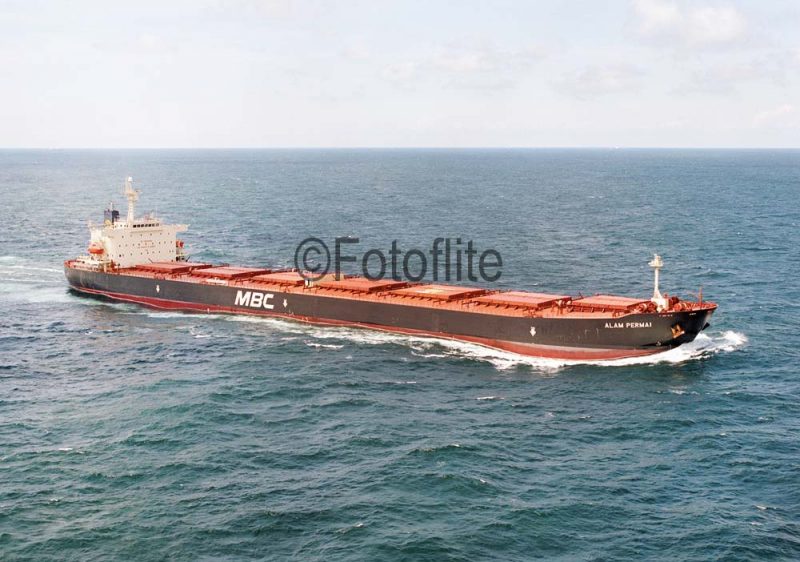
Pac Suhail, Pac Shaula, and Pac Schedar and Pac Seginus are ‘S’ class multi-purpose vessels of 27,725dwt, but the two pairs differ in that Pac Schedar and Pac Seginus are container ships of 1,800 TEU capacity, and the other pair are multi-purpose vessels with five holds, five hatches, and two cranes of 60 tonnes capacity and two cranes of 45 tonnes capacity.
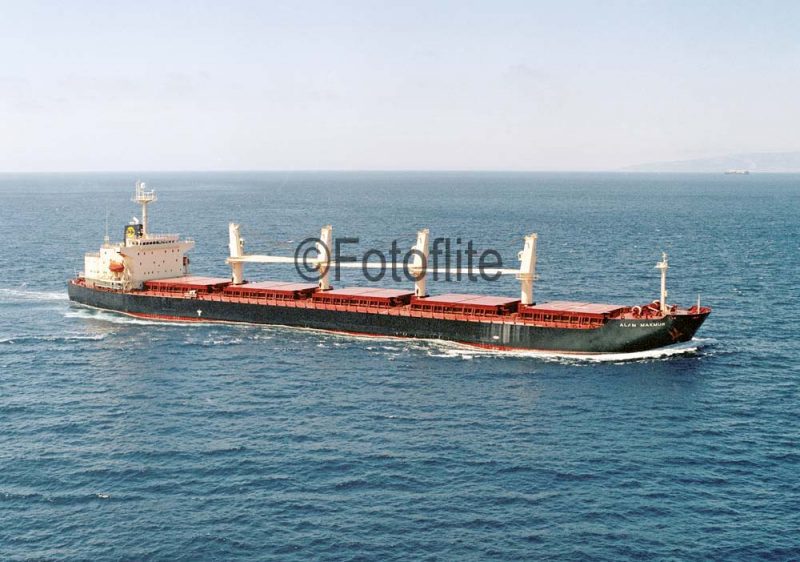
The quartet entered service in 2012 with the same lengths of 180.06 metres, moulded beam of 27.2 metres and a summer draft of 10.5 metres. The double hulls of Pac Shaula and Pac Suhail have a double tier of removable ‘tween decks, and the deck cranes can be used in tandem to lift 120 tonnes of project cargo.
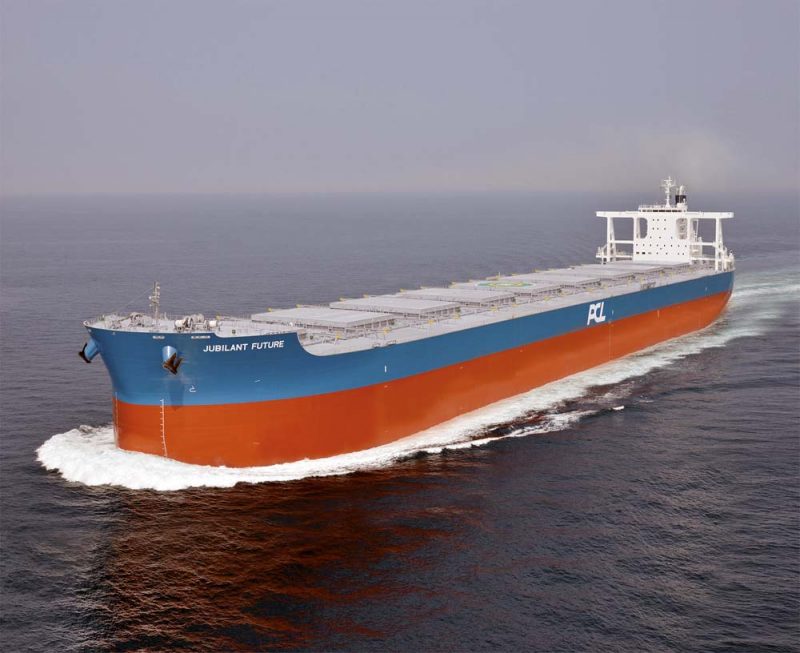
A new class of double hull feeder container ship came into service in May 2017 with the delivery of Pac Cekap of 8,139dwt with a container capacity of 528 TEU. She has her bridge placed forward over the bow with raised cellular guides and a double tier of flush removable ‘tween decks along her hull of length 123.0 metres, moulded beam of 24.4 metres and summer loaded draft of 5.0 metres.
Six times weekly feeder container services operate the short distance from Pasir Gudang in the city of Johore Bahru into Singapore, and once weekly from Pontianak in West Borneo into Singapore. The port of Pasir Gudang was established in 1918 and today has container terminals, road and rail freight access, palm oil storage, petrochemicals and a major power station, the Sultan Iskandar Power Station.
In 2007, the Kuok Group’s palm plantation, edible oils, grains and related businesses was merged with the similar businesses of Wilmar Holdings (Pte) Ltd. of Singapore in a deal worth $2.7 billion.
Unilever is a major customer of Wilmar International, whose Chairman is Kuok Khoon Hong, nephew of Robert Kuok. A tanker company, PCL Tankers (Pte) Ltd., was also set up at this time to manage the fleet of palm oil, product and gas tankers of the Kuok Group, including the chartered tanker Siva Singapura of 19,800dwt. They are all double hulled for safety and are operated from offices in Singapore, Malaysia, Australia, U.S.A. and the U.K. on worldwide oil and gas charters.
There are eight palm oil and product tankers of 17,000dwt named Sulawesi Palm, Sumatra Palm, Kalimantan Palm, Java Palm, Flores Palm, Maluku Palm, Beluga Pacific and Orca Pacific.
There are also seven LPG gas tankers with red hulls, either semi or fully refrigerated, of up to 56,900dwt and named Apoda, Clipper, Mariner, Nusa Bintang, Nusa Bright, NS Challenger and Raggiana, the latter being of 23,479dwt and was completed in 1997.
Malaysian Bulk Carriers Berhad (MBC)
MBC is a subsidiary company of PCL and is headquartered in Petaling Jaya near Kuala Lumpur in Selangor (Malaysia) with incorporation on 19th November 1988. In 1995, it was the subject of a collaboration between Pacific Carriers Ltd. (PCL), Malayan Sugar Manufacturing Company Berhad, and Global Marine Ventures Berhad, the latter being a marine venture capital investment company funded by the Malaysian Government through Bank Industri and Teknologi Malaysia Berhad. Robert Kuok issued an IPO (Initial Public Offering) for MBC in October 2003, with 30% of its shares having already been held by the Malaysian Government.
Bulk carriers from the fleet were given ‘MBC’ in large letters on either side of the hull, and carry sugar, timber, fertilisers, iron ore, steaming and coking coal, grains of every type, scrap, petroleum coke, wood pellets, nickel ore, cement clinker, forestry products and logs, palm kernel expellers, soda ash, salt, alumina, silicomanganese, fluorspar, ferrosilicon and many other cargoes. MBC was later restructured and listed on the Malaysia Securities Exchange Berhad on 2nd December 2003, and is one of the largest shipping companies in Malaysia, and one of a handful of Malaysian shipping companies engaged in international shipping with its own fleet of bulk carriers and product tankers. MBC also operates a container depot and manages third party ships.
A step upwards in carrying capacity was made to Kamsarmax size in 2004/05 with the delivery of a quintet of double hull vessels of 87,052dwt from the IHI Marine yard at Yokohama in Alam Penting, Alam Permai, Alam Pesona, Alam Padu and Alam Pintar at intervals of two months. They have dimensions of length 229.0 metres, moulded beam of 36.54 metres, depth of 19.9 metres and loaded draft of 14.1 metres. The seven holds have a grain capacity of 98,900 cubic metres, and the vessels have a service speed of 14.5 knots from a six cylinder two stroke single acting Sulzer diesel of 14,000 bhp by Diesel United Ltd. of Aioi.
Alam Penting arrived in the Tyne on 4th August 2011 with a cargo of 75,000 tonnes of coal and a deep loaded draft of 12.8 metres, the largest cargo yet received in the port with the main channel into the port having been dredged to 13.0 metres at a cost of £5 million.
There were ten owned and five controlled bulkers in the fleet in February 2011, as well as three owned product tankers.
The current bulker fleet is the Kamsarmax quintet of Alam Penting, Alam Permai, Alam Padu, Alam Pesona and Alam Pintar completed in 2004/05, as well as the Handymax bulkers of Alam Manis, Alam Multiara, Alam Sayang, Alam Madu, Alam Molek, Alam Makmur and Alam Mulia of between 55,650dwt and 61,500dwt, and the Handysize bulkers of Alam Sari, Alam Suria, Alam Setia and Alam Sinar of between 30,000dwt and 36,300dwt. In April 2016, MBC entered into a long term contract of affreightment with TNB Fuel Services Sendirian Berhad of Malaysia, which is a wholly owned subsidiary of Tenaga Nasional Berhad. The contract runs for fifteen years from September 2016 until the end of August 2031 with around 1.5 million tonnes of steam coal being transported to Malaysia per year on a consecutive voyage charter basis. The MBC Kamsarmax quartet of bulkers will be used on the contract, as well as other newer and suitable PACC and PCL Handymax and Panamax bulkers.
Postscript
Robert Kuok at the age of 94 years is also Chairman of the Shangri-La hotels and resorts chain, and he has six other children and a nephew in senior management positions in the businesses. The son of the founder, Kuok Khoon Ean, is Chief Executive Officer (CEO) of all of this vast business empire, and is also a director of Malaysian Bulk Carriers (MBC). The owned and chartered bulkers and multi-purpose vessels have ‘PCL’, ‘MBC’ or ‘PACNAV’ in large white letters on both sides of their black, green or blue hulls. The funnels are black or blue with a central yellow disc bearing two forward pointing black triangles, except if chartered colours are kept e.g. the big bulkers owned by Shoei Kisen of Japan have blue funnels with a white logo. An important Transpacific trade for all of these vessels is to the North West coast of Canada and the United States, and the fleet is wisely covered for oil spill response along the coast of Washington State except for the Columbia river by the National Response Corporation (NRC) of the U.S.A.
During 2016/17, the management of PCL have had several rounds of talks regarding the sixty long term chartered bulkers during a severe downturn in freight rates. The Japanese owners of these chartered ships were asked to take cuts in the agreed charter rates from 20% to 50% of the agreed figures in return for an extension of the charter periods. The talks were ongoing for a long time, and various other options were discussed to solve the consequences of a bad freight market, a difficult process and an unexpected outcome to the agreed charters dating back some years.
I wish to thank the memoirs of Robert Kuok, running to 376 pages, which were published in Singapore, Malaysia, Indonesia and Hong Kong at the end of 2017 and the start of 2018, with extracts on the internet. Robert Kuok is a well-known and respected businessman in Malaysia and Singapore and one of the ‘godfather’ tycoons of the Far East, and has spent seventy years building up his business empire, and now lives in Hong Kong.

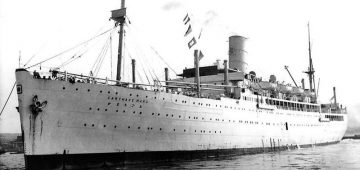
Comments
Sorry, comments are closed for this item